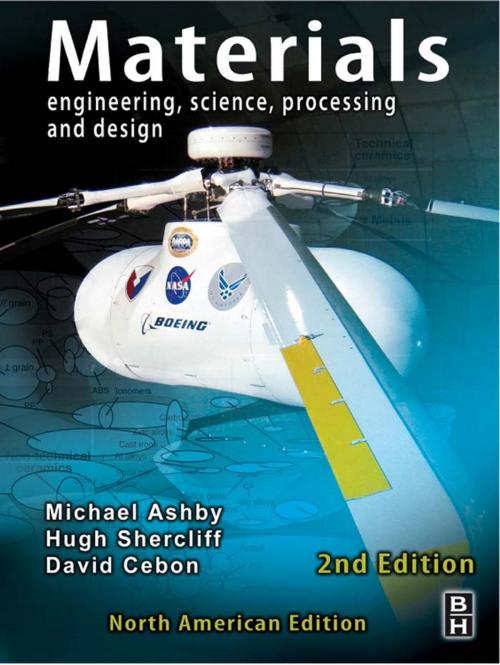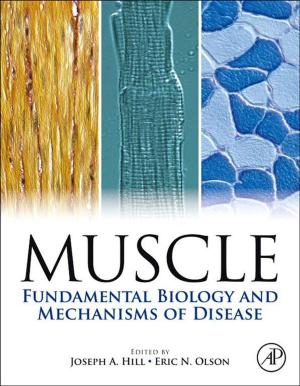Materials
Engineering, Science, Processing and Design
Nonfiction, Science & Nature, Technology, Material Science, Engineering, Mechanical| Author: | Michael F. Ashby, Hugh Shercliff, David Cebon | ISBN: | 9780080961552 |
| Publisher: | Elsevier Science | Publication: | November 20, 2009 |
| Imprint: | Butterworth-Heinemann | Language: | English |
| Author: | Michael F. Ashby, Hugh Shercliff, David Cebon |
| ISBN: | 9780080961552 |
| Publisher: | Elsevier Science |
| Publication: | November 20, 2009 |
| Imprint: | Butterworth-Heinemann |
| Language: | English |
Materials: Engineering, Science, Processing and Design, Second Edition, was developed to guide material selection and understanding for a wide spectrum of engineering courses. The approach is systematic, leading from design requirements to a prescription for optimized material choice. This book presents the properties of materials, their origins, and the way they enter engineering design. The book begins by introducing some of the design-limiting properties: physical properties, mechanical properties, and functional properties. It then turns to the materials themselves, covering the families, the classes, and the members. It identifies six broad families of materials for design: metals, ceramics, glasses, polymers, elastomers, and hybrids that combine the properties of two or more of the others.
The book presents a design-led strategy for selecting materials and processes. It explains material properties such as yield and plasticity, and presents elastic solutions for common modes of loading. The remaining chapters cover topics such as the causes and prevention of material failure; cyclic loading; fail-safe design; and the processing of materials.
* Design-led approach motivates and engages students in the study of materials science and engineering through real-life case studies and illustrative applications
* Highly visual full color graphics facilitate understanding of materials concepts and properties
* Chapters on materials selection and design are integrated with chapters on materials fundamentals, enabling students to see how specific fundamentals can be important to the design process
* Links with the Cambridge Engineering Selector (CES EduPack), the powerful materials selection software. See www.grantadesign.com for information
NEW TO THIS EDITION:
- "Guided Learning" sections on crystallography, phase diagrams and phase transformations enhance students’ learning of these key foundation topics
- Revised and expanded chapters on durability, and processing for materials properties
- More than 50 new worked examples placed throughout the text
Materials: Engineering, Science, Processing and Design, Second Edition, was developed to guide material selection and understanding for a wide spectrum of engineering courses. The approach is systematic, leading from design requirements to a prescription for optimized material choice. This book presents the properties of materials, their origins, and the way they enter engineering design. The book begins by introducing some of the design-limiting properties: physical properties, mechanical properties, and functional properties. It then turns to the materials themselves, covering the families, the classes, and the members. It identifies six broad families of materials for design: metals, ceramics, glasses, polymers, elastomers, and hybrids that combine the properties of two or more of the others.
The book presents a design-led strategy for selecting materials and processes. It explains material properties such as yield and plasticity, and presents elastic solutions for common modes of loading. The remaining chapters cover topics such as the causes and prevention of material failure; cyclic loading; fail-safe design; and the processing of materials.
* Design-led approach motivates and engages students in the study of materials science and engineering through real-life case studies and illustrative applications
* Highly visual full color graphics facilitate understanding of materials concepts and properties
* Chapters on materials selection and design are integrated with chapters on materials fundamentals, enabling students to see how specific fundamentals can be important to the design process
* Links with the Cambridge Engineering Selector (CES EduPack), the powerful materials selection software. See www.grantadesign.com for information
NEW TO THIS EDITION:
- "Guided Learning" sections on crystallography, phase diagrams and phase transformations enhance students’ learning of these key foundation topics
- Revised and expanded chapters on durability, and processing for materials properties
- More than 50 new worked examples placed throughout the text















